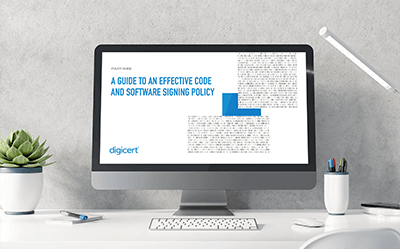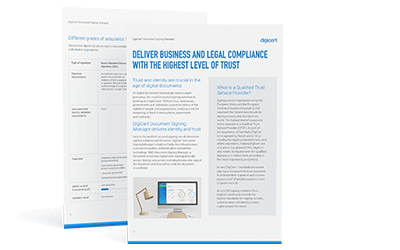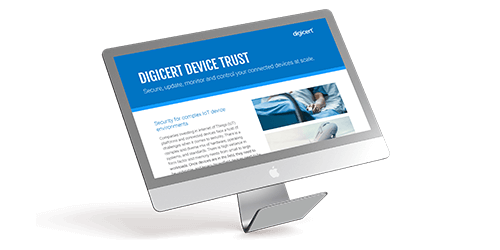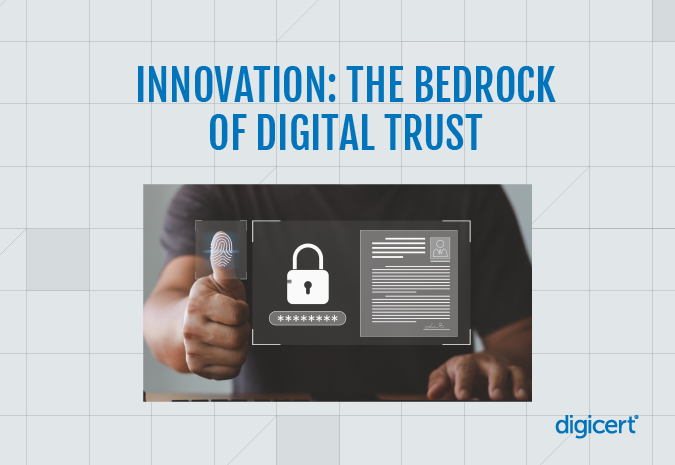Enterprise SSL Certificate Management: What You Need to Know

With the increased number of Internet-connected devices, online portals, and services that organizations manage, in addition to the growing number of threats that these systems face, enterprise certificate management is more important than ever.
Completely securing the enterprise today requires more than just purchasing an SSL Certificate. Administrators managing multiple systems and services must account for dozens, if not hundreds, of certificates, unique expiration dates, system vulnerabilities, and internal processes and controls for preventing fraud.
Picking the right Certificate Authority isn't always a straightforward process. Price is a factor as IT budgets continue to feel the squeeze, but simply choosing the lowest cost provider can leave your organization exposed to existing threats that enterprise security administrators must account for.
What Is Enterprise SSL Management?
The full lifecycle of SSL security begins far before a certificate is purchased and extends beyond certificate installation. Certificate lifecycle management needs to account for certificate discovery and deployment as well as ongoing monitoring and remediation of vulnerable network resources.
Additionally, growing enterprises have multiple teams and departments that need to manage SSL in their organizations and managed PKI can give these organizations the resources to control certificate approval, issuance, and track costs to become more efficient. Enterprise SSL platforms also give the added benefits of:
- Flexible purchasing options like flat-fee, per year, and per certificate purchasing
- Pre-approved domains for instant issuance of SSL Certificates
- Centralized certificate monitoring
- Enhanced user groups and permissions
- Customizable processes and workflows
1. Take Advantage of Enterprise Certificate Discovery
When considering switching managed SSL service providers, your first step is to survey the existing SSL usage and environment. You need to know what you currently have to set reasonable expectations for the costs and the time involved in switching.
Certificate Inspector makes is easy to identify all of the SSL Certificates installed across your network. The inspector agent can identify internal and external certificates running on servers and network devices and makes it easy to quickly account for all certificates your organization is currently managing.
Once identified, the Inspector service continues to monitor those certificates to ensure that proper security is running on those server and network devices, and gives you powerful management options to update and replace those certificate when needed.
2. Create Efficient Certificate Management Workflows
Managing certificates, requests from users, and process workflows through spreadsheets can be a headache. The problem only compounds as organizations grow and their certificate needs increase.
Many enterprises are not able to account for all of their SSL Certificates and the decentralized approach to certificate management leaves the organization vulnerable to insecure systems and service failures due to expired or unaccounted for certificates. Worst of all, inefficient certificate management costs the organization in time and resources.
A secure certificate management portal is critical to help organizations handle their certificate needs beyond just purchasing an SSL Certificate. The entire certificate management lifecycle can be managed from one easy-to-use online platform. Managed SSL services also allow administrators to create automated rules for certificate issuance, reissues, and revocation.
Enterprise PKI platforms also give greater flexibility to organizations in managing billing options, reporting, and creating custom workflows to unify certificate issuance and management across the enterprise.
3. Reduce Certificate Management Costs
Cost is a factor in selecting an enterprise managed services provider. In addition to the cost of certificates, many service providers include hidden service fees when organizations sign up for enterprise PKI. Costs for things like re-issues, additional users, technical support, security monitoring, etc. can quickly increase the size of an enterprise contract and make certificate management a weight to IT security budgets.
The DigiCert approach is to eliminate the hassle of enterprise SSL and deliver a simple solution that is scalable to enterprises of all sizes. Managed SSL is transparent in its pricing and is focused on delivering value to the organization.
Our philosophy has always been to deliver exceptional customer support in the SSL experience, so we've eliminated the technical support tiers and put our SSL experts on the front lines of customer support. With one phone call, email, or chat, enterprise customers can be in touch with an agent that is trained across all platforms and products and can handle anything from pre-sales to back-end server certificate deployment and configuration.
Enhancing Online Trust
As a leading organization behind some of the latest trends and initiatives in online security that are critical to SSL trust, DigiCert continues to invest in the systems that will improve SSL performance and make it faster and easier for enterprises to deploy, manage, and monitor security across their networks.
From certificate discovery and monitoring, to SSL deployment and workflow management, enterprises need to evaluate their existing management platform and ensure that they're getting everything they need from their services provider.
With advances in certificate management and cloud services, easy-to-use certificate monitoring and management solutions should be at the core of enterprise SSL today to help organizations simplify the SSL experience.
Discover why PKI is the logical extension of your TLS/SSL initiatives in our PKI eBook.













